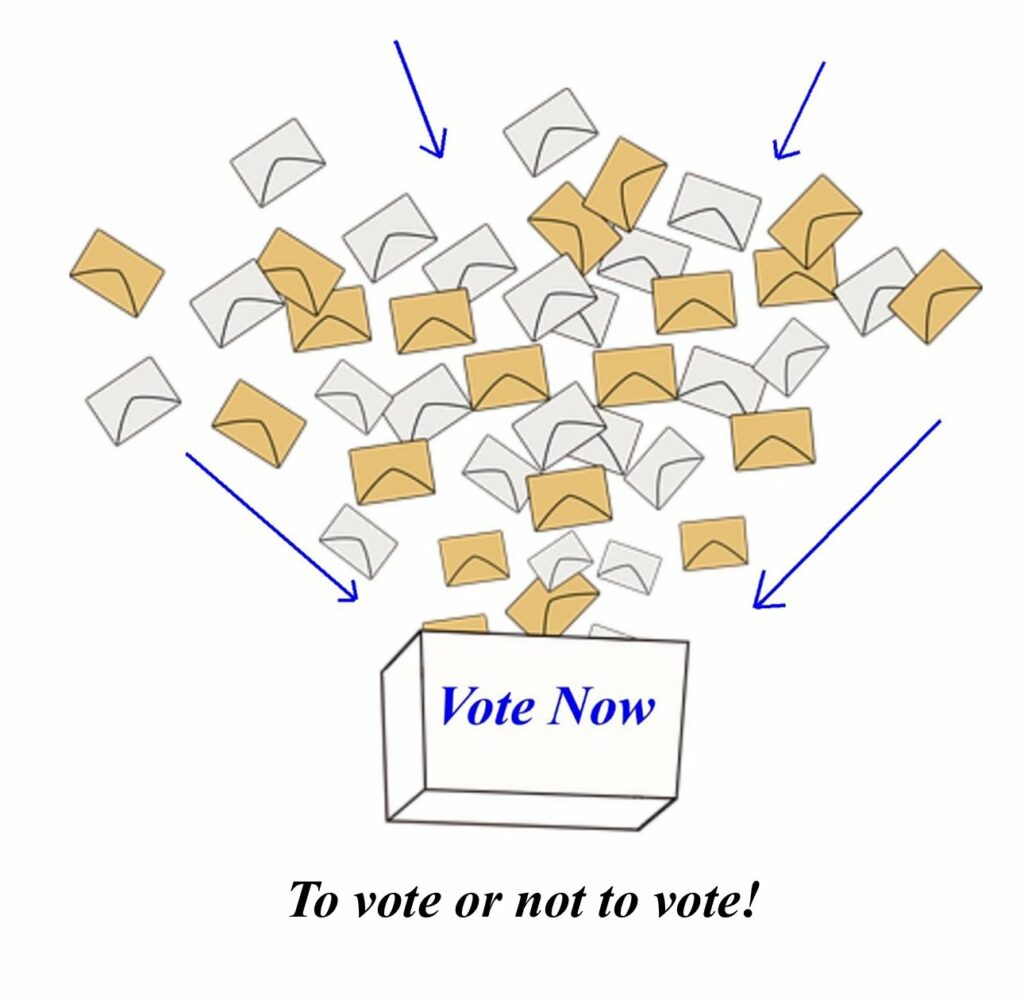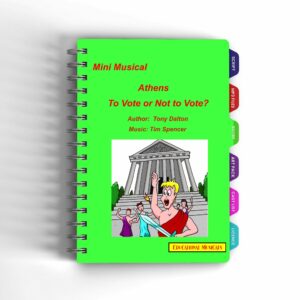
Many years ago, in another century, I stood for the local council and I lost by two votes!
Almost immediately after this there was a general election and I went out knocking on doors for my candidate. I lost count of the number of doors I knocked on and was told they hadn’t voted for me, in fact they hadn’t voted at all, but they didn’t like the man who beat me.
They told me that they just didn’t think their vote would count.
However, they now understood that their vote was important and would always vote in future.
Basically, it is important to vote as your vote could be the one that turns everything, as would have happened in my local election. It did have a benefit in the General Election that followed, as in our ward there were more votes than just a few weeks earlier.
Where did voting come from?
Your right to vote came all the way from Ancient Greece?
When?
In 500 BC!
At the time they were ruled by an incredibly violent dictator. He suddenly realised just how unpopular he was, he worried that the population were about to do to him what he had been doing to everyone else. He was a coward and worried, therefore he called all the citizens together and said that if they could agree on a method that meant that everybody ran Athens, he would go. He was that frightened!
The people of Athens then put together the first ever recorded democracy.
They didn’t have elections, no, they had a ballot instead. They put the name of every Athenian into a pot. They then took out 500 names and those 500 names became the counsellors.
Now 2000 years later things are a bit different, but the basic principle is the same, everybody should be involved.
You see if you don’t vote, you don’t have any say in what happens to you.
Today things are different.
As now there are millions of us eligible to vote, so we couldn’t put all the names in a hat!
Therefore, we ask people who are prepared to join the council or Parliament to put their names forward and stand for election.
Now if we want to make a change, but don’t want to stand, we can still vote for the person we feel will work for us, and if they don’t, we can vote against them next time.
Now I know that sounds silly, but if I go all the way back to my own original story. People didn’t vote for me and I lost. They realised that and next time they voted for me and I won by a big margin.
The moral
Your vote means something.
Every time I have gone to an election count, I feel incredibly proud, that we live in a country where you can vote. There are so many countries in the world where voting doesn’t happen.
Remember, voting is important and something we can do in this country.

Our sister site Educational Musicals has published a 10 minute Mini musical based on this To Vote or Not to Vote, which has three unique songs you will love that you can start rehearsing immediatly by clicking on To Vote or Not to Vote
Isn’t history fun?
10 questions to discuss:
- What are the biggest differences between voting in ancient Greece and modern democracies?
- Why do you think the author used their personal story to emphasize the importance of voting?
- Do you think the blog effectively addresses the concerns of people who feel their vote doesn’t matter? Why or why not?
- What are some potential downsides or limitations of the Athenian democracy model?
- How can individuals get involved in their communities beyond just voting in elections?
- What are some of the challenges facing modern democracies today?
- How can technology be used to improve voter participation and engagement?
- What are some specific actions people can take to encourage others to vote?
- What are the author’s personal motivations for being involved in local politics?
- What role can education play in increasing voter awareness and understanding of the democratic process?
These questions encourage critical thinking and deeper understanding of the blog’s message about the importance of voting and participation in democracy.
For more on this:
© Tony Dalton

